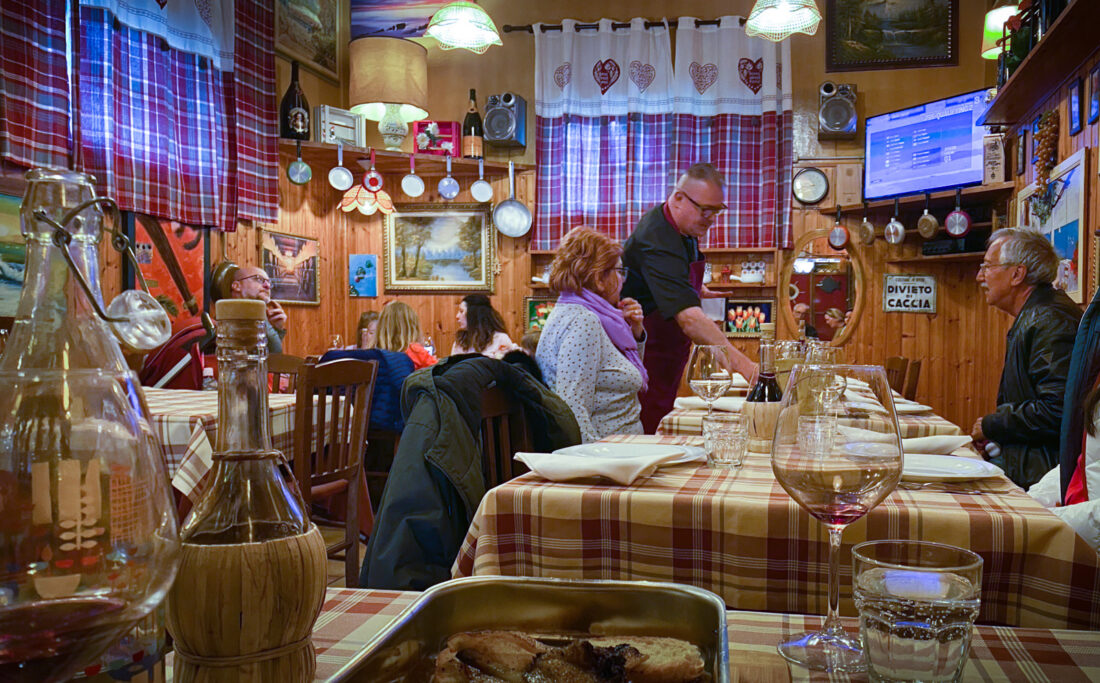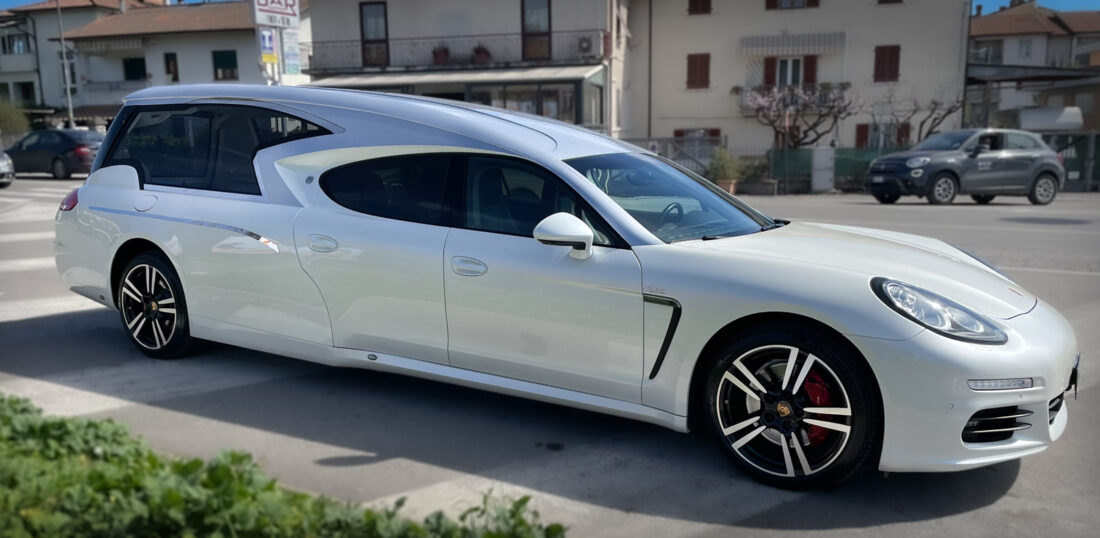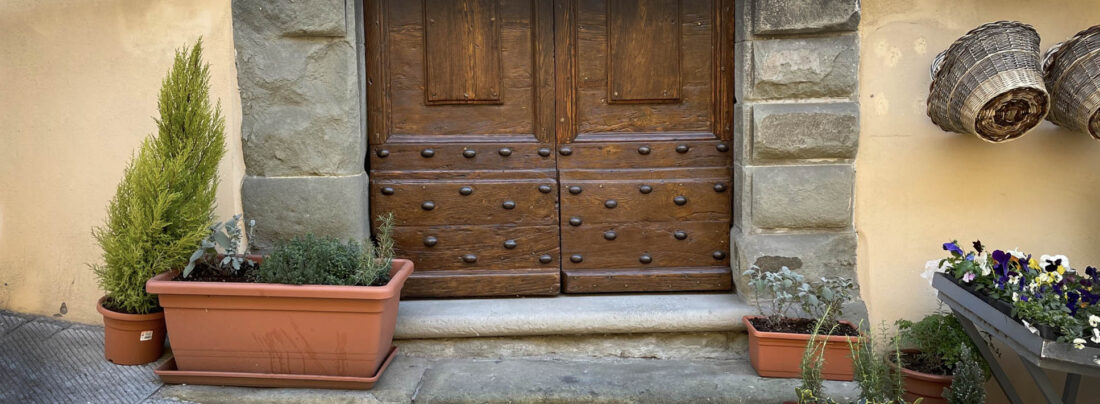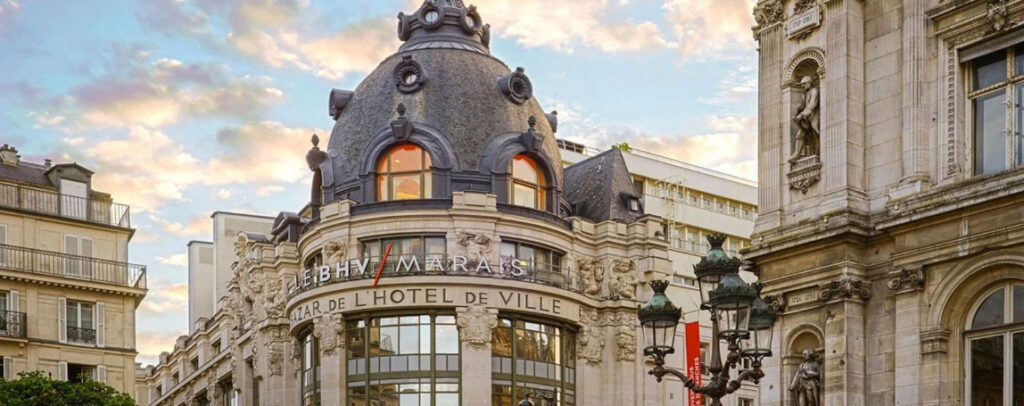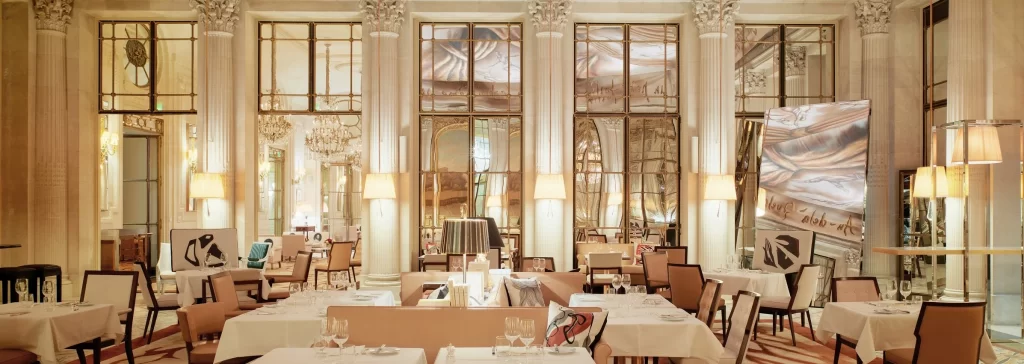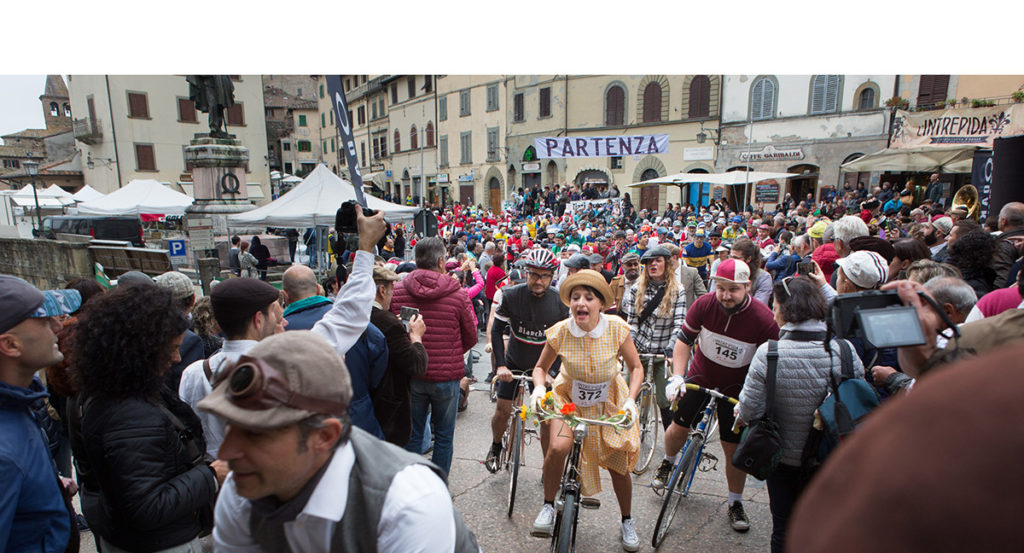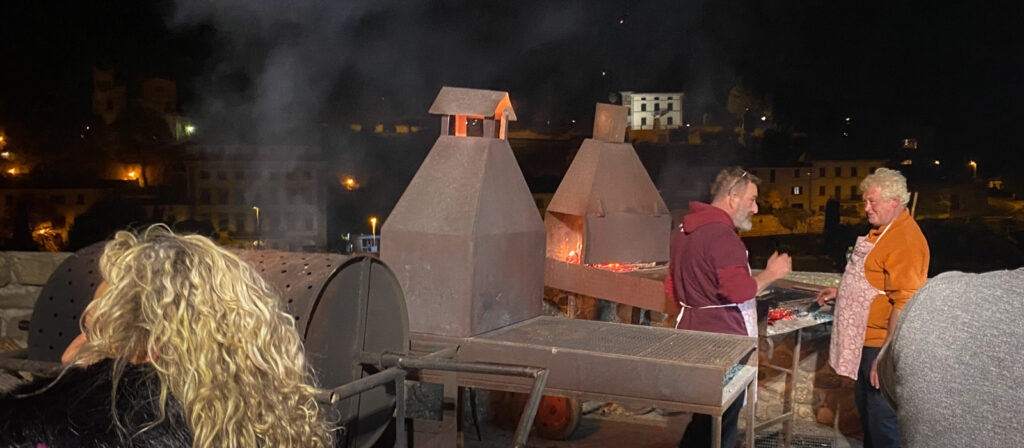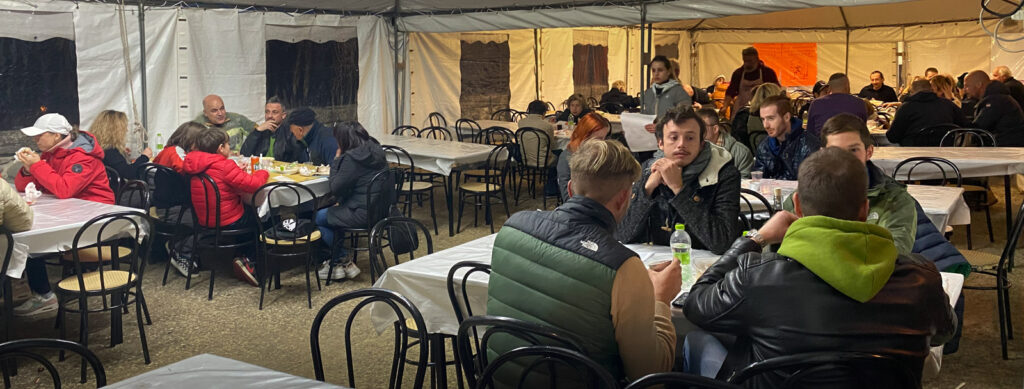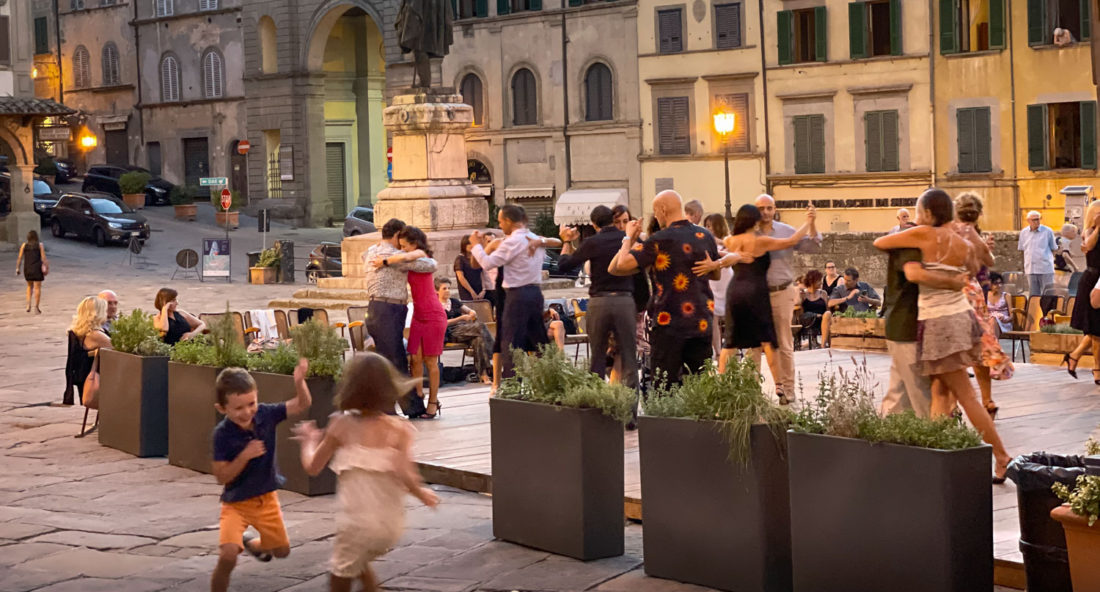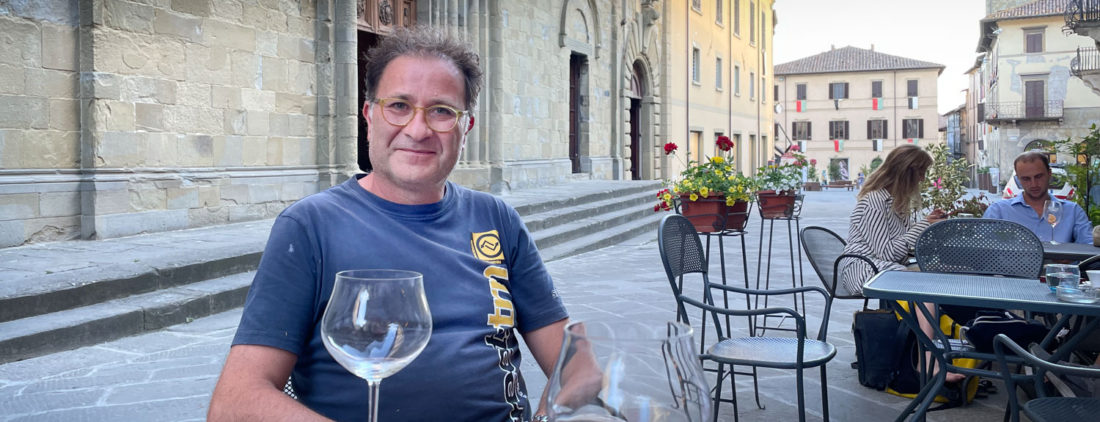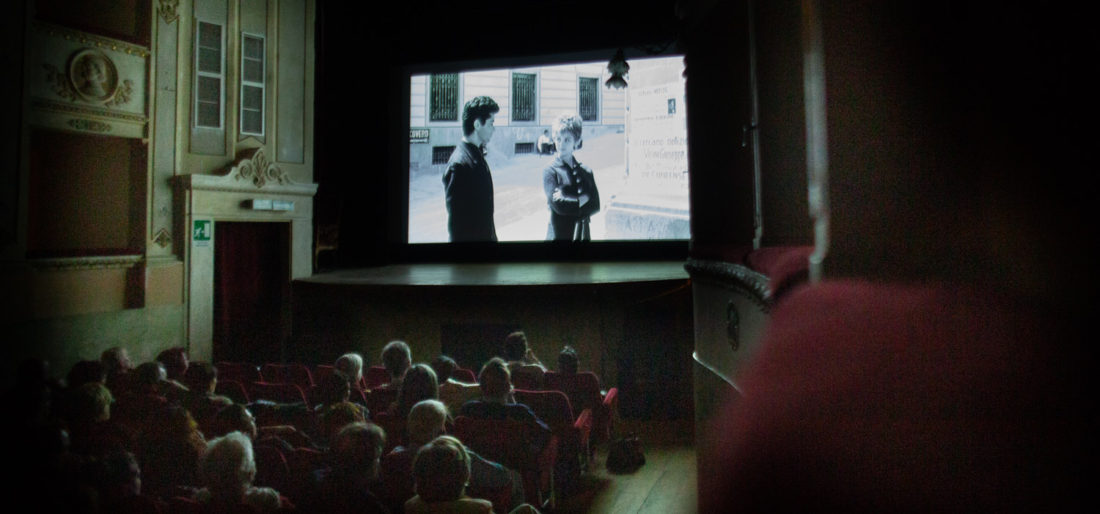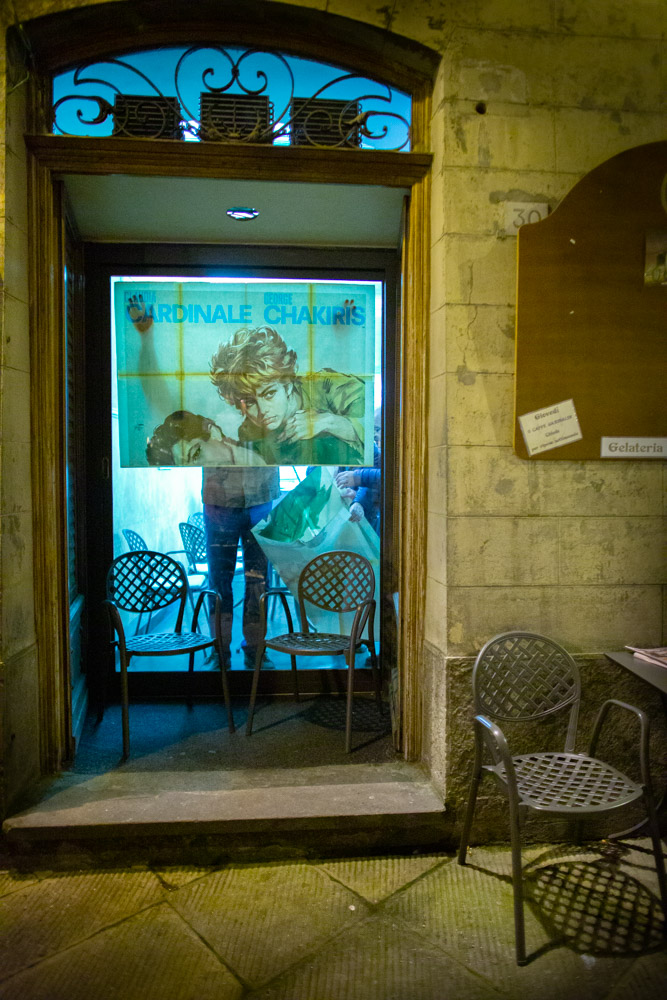The Mediterranean diet
I’m doing something next weekend that really scares me. I am joining a hike from La Verna back to our village. Ten miles a day, mainly up and down over steep terrain, two overnights. I lost a bit of my confidence for such things after the Chamonix helicopter rescue debacle. To prepare, I decided to pick up some things, like hiking boots, at Decathlon which is located in the big box store area of the larger town near us. I want to be fit and ready.
We timed our shopping excursion around having lunch in the next town to break up the routine. Although this town has a beautiful medieval center that includes Roman ruins we chose an easy to get to restaurant in the suburbs near the box stores, not our usual neighborhood for restaurants. John found a simple, family Italian place that people seemed to love in a modern building on a modern street, I Bottega.
We entered the restaurant with the best of intentions. It’s been long past time, for me, to tackle the toll on the waistline of eating and drinking whatever I want in Italy. John and I have been dialing it back and eating mainly vegetables and lean meats. Along the lines of the famed Mediterranean diet.
I keep reading about this mythical way of eating. Loads of fish. Fresh fruits and vegetables. Whole grains.
Little red and no processed meat. And I marvel. What Mediterranean are they talking about? I can drive to the body of water known as the Mediterranean in two hours so I think I am in the Mediterranean sphere of influence but you’d never know it from what people eat around here. Every menu is largely identical. A full meal includes appetizers, which are a couple of different toppings on slices of saltless Tuscan bread. The other choice is the cheese and salumi plate which is usually served on a cutting board (it’s called a tagliere, which means cutting board) with five or six different kinds of preserved meats—prosciutto, salumi and the like—and pecorino, in a few different stages of aging. This is followed by the pasta course, and then usually by meat. Almost always a steak as this region is famous for its Chianina beef, or pork. If you are lucky you can order a bit of sauteed spinach on the side. The other ubiquitous food staple is pizza. Where is the fish? The fruit? The vegetables? Where are these people eating this stuff because all the 90 year olds I see are enthusiastically eating prosciutto and pasta?
So back to the restaurant. We walk in, heads held high and backs firm in resolve. We arrive right at 12:30 so are very early and the only ones there. We had our dog and they, as with every other restaurant we’ve ever been in, are delighted to see her. A set designer would have a really hard time replicating this place. Every wall is covered with paintings of different genres, all bad. Between the paintings are shelves filled with nick nacks. Every real Italian restaurant has at least one TV going in every room, and this one is no exception. It’s tuned to a motorcycle race which, it turns out, is hard to look away from. Most Italian restaurants worth the time also have a radio blaring and so did this one.
There’s a huge menu on a board hanging on the wall with about eleven types of freshly made pasta and an equal number of sauces. The trouble with this presentation is that it takes skill and practice to know what you are allowed to pair with what. It looks easy but is a minefield. Pesto on pici? You’d be better off dead. But we are ignoring all of of the pastas and trying to figure out what virtuous bits of meat we will have with a simple salad or maybe some of the ever present sauteed spinach. We are strong and resolute.
Then a lovely, warm 40-ish waiter arrives. He explains that his mother has been working all morning on several types of fresh pasta to go along with some interesting sauces his grandmother makes. He is bearing two very full “amuse bouches” plates of large pieces of bread topped with a traditional chicken liver thing, but this time it was cooked nine hours by his grandmother and was delicious, and sauteed greens with sausage that was also lovely. And the two are more than enough for lunch but here we are and need to order. He says that mom will make us a sampling of what she’s whipped up this morning and we, of course, say yes. We order roasted duck to share and greens. There’s an open bottle of house wine on the table. Our pastas arrive in two small flying pans which are set on the table and are unusual and delicious. The duck is incredible. Yet another meal where the Mediterranean diet ideal hits reality. Over the course of the meal the restaurant becomes packed with couples and families, all happy to be there and content. Three more dogs walk in, one is a Bernese Mountain dog who doesn’t even begin to fit under the table.
And this place touches me and puts everything else in perspective. I marvel at this constantly—there is nothing obvious in this decor, or this cuisine that speaks to me on an inspirational level—stick me in most places in France and I feel inspired and want to live that way, but Italy doesn’t push the same buttons of aspirational desire. But there’s something even deeper here. The acceptance, warmth, and lack of self-aware positioning of this place, the pride in creating simple things of flour and water and meat and tomatoes, the purity of being whole-heartedly comfortable in who you are and what you do still take my breath away when I find it, which I do often. Maybe this way of being in the world is what’s actually at the heart of the famed Mediterranean diet.
Now wish me luck on my hike.


